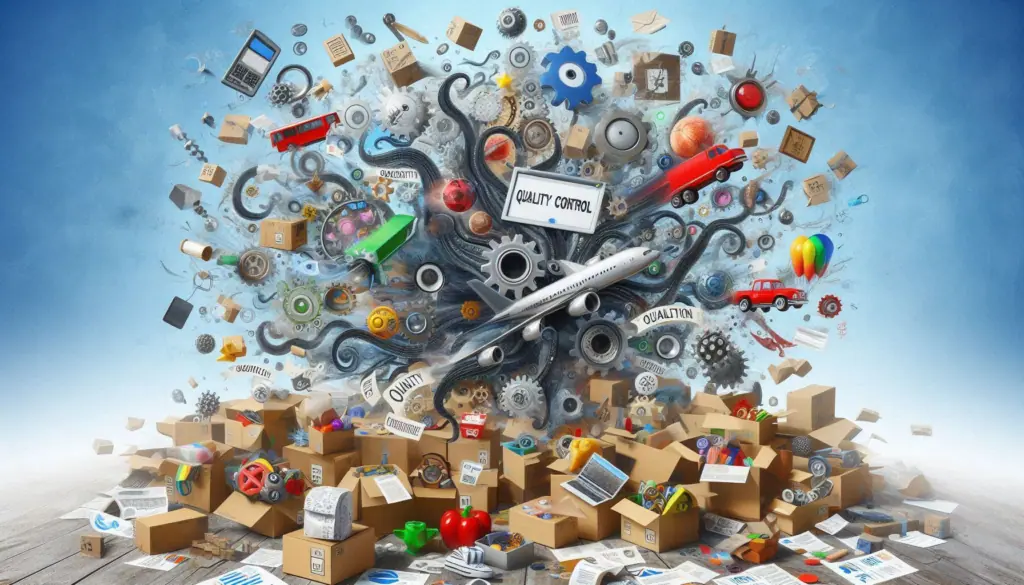Revolutionizing Quality Assurance With AI Test Automation

Written By:
Last Updated Date:
TL;DR
AI test automation is revolutionizing software testing by making it faster, more accurate, and scalable. The article shares Emma’s story, a CEO who used AI tools to solve QuickShop’s testing issues amid rapid growth. It highlights the benefits, strategies, and tools for AI-driven testing while addressing potential risks and ethical concerns.
Embrace AI in your testing processes to improve software quality and explore tools or consult experts to begin transforming your business today. Additionally, AI test automation supports continuous testing by offering features such as auto-healing, parallel testing, and rapid test creation, which enhance the efficiency and effectiveness of CI/CD pipelines.
Key Takeaways
- Efficiency and Growth: AI test automation significantly boost testing efficiency, allowing businesses to handle rapid growth and frequent releases smoothly.
- Strategic Implementation: Developing a robust automated testing strategy involves clear objectives, the right tools, and continuous optimization, ensuring better software quality.
- Addressing Challenges: While AI in testing offers immense benefits, it’s essential to be aware of its limitations and ethical considerations, preparing your business to adapt responsibly and effectively.
From Chaos to Control

Meet Emma, the CEO of an e-commerce startup. Her company, QuickShop, was experiencing rapid growth, and with it came a deluge of challenges. The most pressing issue was software bugs that appeared with every new feature release. Despite having a dedicated team of testers, the manual testing process couldn’t keep up with the pace of development. This resulted in delayed launches, frustrated customers, and lost revenue.
Emma knew she needed a solution. During a tech conference, she heard about AI test automation and its potential to revolutionize software testing. Intrigued, she decided to give it a try. She invested in AI-powered tools and integrated them into QuickShop’s testing process. She also utilized machine learning algorithms to enhance efficiency and accuracy in test execution.
The results were astounding. Bugs were identified and fixed faster than ever, releases became smoother, and customer satisfaction soared. The efficiency gained from AI test automation allowed Emma to reallocate her resources, focusing more on innovation and growth.
This transformation story of QuickShop highlights the immense potential of AI in test automation and sets the stage for our deep dive into how it can benefit your business.
The Rise of AI in Test Automation

Artificial intelligence is revolutionizing how we approach software testing. Traditionally, testing was manual and prone to human error and time constraints.
AI-powered test automation tools can now create, edit, and update tests of any complexity, offering features such as self-healing tests, visual grid recognition, and automated test generation using AI.
This shift improves accuracy and significantly speeds up the testing process.
Types of AI in Testing
- Machine Learning (ML): Algorithms learn to predict and identify defects from past test data.
- Natural Language Processing (NLP): Helps understand and create test cases based on human language.
- Computer Vision: Ensures UI consistency across different devices by comparing visual elements.
- Business Process-Focused Automation: AI-powered test automation tools integrate business process-focused automation throughout the technology stack. This approach handles real-world complexities without requiring code and facilitates comprehensive business assurance.
Why AI Test Automation Matters?

AI-driven tools bring remarkable efficiency by executing tests much faster than humans, allowing for more frequent and thorough testing cycles. They enhance accuracy by minimizing human error, ensuring more reliable results.
Automating repetitive tasks saves costs and allows businesses to allocate resources more effectively. Furthermore, AI tools can easily scale to handle larger projects, making them perfect for companies on a growth trajectory.
Essential Elements of Automated Testing

Developing an effective automated testing strategy involves several crucial steps:
1. Define Objectives
Clearly outline what you aim to achieve with AI test automation. This could include reducing testing time, improving coverage, or increasing accuracy.
2. Select the Right Tools
Choose AI-powered testing tools that align with your needs. Popular options include Selenium, Testim, and Applitools.
3. Design Effective Test Cases
Create test cases that cover a wide range of scenarios, focusing on areas prone to errors.
4. Integrate with CI/CD Pipelines
Ensure your automated tests are integrated with your continuous integration and continuous delivery (CI/CD) pipelines to facilitate seamless testing throughout the development cycle.
5. Monitor and Optimize
Continuously monitor the performance of your AI test automation and make necessary adjustments to improve efficiency and effectiveness.
6. Test Maintenance
Regularly manage and update your automated tests to ensure they align with changes to the code and application. Address challenges such as flaky tests and emphasize the importance of running the test suite smoothly for effective automation testing.
Effective leadership is crucial in guiding teams through the AI transformation journey. It involves understanding how AI influences testing frameworks and integrating AI-powered tools to boost efficiency and effectiveness. In our Leading Through the AI Transformation Journey article, dive deeper into navigating this journey.
When organizations integrate these strategies thoughtfully, they harness automation to achieve broader test coverage, expedite feedback cycles, and ensure the delivery of dependable software solutions.
Popular AI Test Automation Tools
There are numerous AI-powered tools available, each offering unique features and benefits:
- Testim: Known for its self-healing tests that adapt to changes in the application.
- Applitools: Specializes in visual AI testing, ensuring UI consistency across different devices.
- Selenium: A versatile tool that supports a wide range of programming languages and frameworks.
These tools facilitate test creation, expand coverage, and reduce test maintenance through AI-driven functionalities.
Real-World Applications
Companies across various industries are successfully leveraging AI test automation to enhance their software quality:
Amazon
One notable case is Amazon, a global e-commerce giant. By implementing AI test automation, Amazon reduced its testing time and increased test coverage, significantly improving performance testing and overall software quality.
XYZ Financial Services
Take XYZ Financial Services, for example. By leveraging AI-powered tools, they slashed the number of critical bugs. This breakthrough boosted customer satisfaction and loyalty, fortifying their software reliability and operational efficiency.
Overcoming Challenges in AI Test Automation

While the benefits are clear, adopting AI test automation comes with its own set of challenges. Businesses must address issues such as tool selection, initial setup costs, and the need for skilled personnel.
Additionally, maintaining and optimizing test scripts in automated testing environments can be complex, but advancements in AI can significantly improve the management and upkeep of these test scripts. Companies can successfully navigate these challenges by starting small, focusing on high-impact areas, and gradually scaling up.
Risks and Limitations
AI test automation is not without its limitations. AI might struggle with complex, unpredictable scenarios or require extensive training data. Understanding these limitations is crucial to effectively leveraging AI in your testing processes.
Ethical Considerations
As AI becomes more prevalent in software development, ethical considerations like algorithm bias and potential job displacement should be addressed. Acknowledging these broader implications ensures responsible AI adoption.
The Future of AI Test Automation

As AI technology continues to evolve, its applications in test automation will expand. Future trends include increased integration with machine learning, more advanced predictive analytics, and greater emphasis on security testing. Staying ahead of these trends will be crucial for businesses seeking a competitive edge.
Conclusion
AI test automation isn’t just a tech buzzword; it’s a game-changer for businesses of all sizes. Imagine, like Emma from QuickShop, navigating through the chaos of rapid growth with the help of AI-powered tools. You can unlock unprecedented efficiency, precision, and scalability by embracing a well-thought-out automated testing strategy.
This journey will empower your business to innovate faster and deliver top-notch products to your customers. Keep learning, adapting, and optimizing, and watch your business grow and thrive in the ever-evolving digital landscape.
Frequently Asked Questions (FAQ)
I’m a technology specialist and entrepreneur with over 20 years of experience in the IT industry. I’m passionate about innovation, ideation, and commercialisation, and enjoys working with businesses helping to improve their processes and technological architecture. I have a Masters in Commercialisation and Innovation that brings a unique perspective to my expertise, having experience in various industries and countries.






